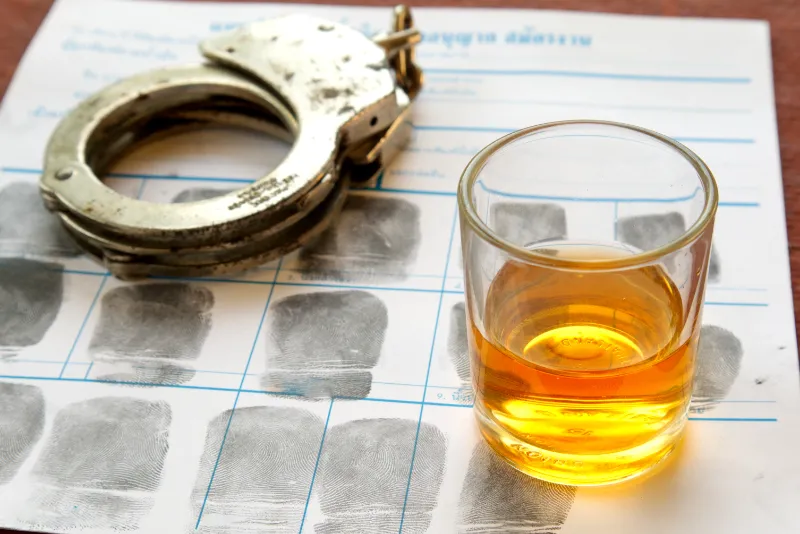
Cruising down scenic North Carolina highways or exploring vibrant city streets is a pleasure, but enjoying the ride comes with a responsibility to ensure your safety and that of others.
Understanding North Carolina’s Driving While Impaired (DWI) laws is crucial.
A DWI conviction affects driving privileges, employment opportunities, and insurance rates with serious legal and personal consequences.
This guide highlights key points to navigating NC DWI laws and regulations.
To learn how our Carteret County DWI defense lawyers can assist you, please call (252) 728-1373 or send us an online message today. We offer free consultations.
Key Takeaways
- North Carolina enforces strict DWI laws, with penalties based on severity levels and aggravating factors like BAC, prior offenses, and reckless driving.
- The legal BAC limit in NC is 0.08% for most drivers, and 0.04% for commercial drivers. For drivers under 21, there’s zero tolerance for alcohol.
- DWI charges aren’t limited to alcohol—you can be charged for driving under the influence of drugs, including marijuana and prescription meds.
- Officers can arrest you for DWI even under the BAC limit if they observe signs of impairment during traffic stops or sobriety tests.
- DWI penalties range from Level V (least severe) to Aggravated Level I, with fines up to $10,000 and jail time up to 3 years for the most serious offenses.
- License revocation is common, and repeat offenders may face permanent revocation and mandatory ignition interlock requirements.
- Community service and probation are often ordered for Levels III, IV, and V, depending on the judge’s discretion and case details.
- An experienced DWI attorney can help reduce or dismiss charges by challenging evidence, negotiating with prosecutors, and protecting your rights.
Jump to a Topic
DWI Laws in North Carolina
Getting behind the wheel after consuming alcohol or drugs is a serious offense in North Carolina, and the state takes a firm stance against DWI (Driving While Impaired). Below is an overview of the state’s DWI laws:
Underage DWI: Zero Tolerance
North Carolina enforces a strict zero-tolerance policy for underage DWI. This means any detectable amount of alcohol in a driver’s system under the age of 21 can result in a DWI charge. This law prioritizes the safety of young drivers by ensuring stricter enforcement.
Standard Legal Limit for Alcohol in NC
For drivers over 21, the legal blood alcohol concentration (BAC) limit is 0.08%. This means your blood alcohol content cannot exceed 0.08% while operating a vehicle.
Exceeding this limit is considered a DWI offense. Commercial drivers such as truck drivers and bus drivers face an even stricter limit of 0.04% BAC.
DWI Extends Beyond Alcohol
It’s important to remember that DWI applies not only to alcohol but also to driving under the influence of controlled substances, including marijuana, cocaine, and even some prescribed medications.
Officer Discretion and Testing
Even if your BAC falls below the legal limit, a law enforcement officer can still arrest you for DWI if they suspect you are impaired by alcohol or drugs.
These suspicions can be based on your driving behavior, performance on field sobriety tests, or a breathalyzer test. In some cases, a blood test may be administered to definitively determine your level of intoxication.
North Carolina DWI Penalties
DWI penalties in NC for impaired drivers are complex, with the state categorizing DWIs into five levels, based on BAC and other aggravating factors. First-time DWI offenders in North Carolina face fines ranging from several hundred to several thousand dollars, depending on case circumstances.
Level V is the least severe, with Aggravated Level I the most serious.
Each level carries distinct penalties:
| Level | Fine | Min. Jail | Max. Jail |
| Level V | Up to $200 | 24 hours | 60 days |
| Level IV | Up to $500 | 48 hours | 120 days |
| Level III | Up to $1,000 | 72 hours | Six months |
| Level II | Up to $2,000 | Seven days | One year |
| Level I | Up to $4,000 | 30 days | Two years |
| Aggravated Level I | Up to $10,000 | One year | Three Years |
License Revocation and Ignition Interlock
A first offense can result in license revocation for up to a year, while a third offense typically leads to permanent revocation.
Ignition Interlock Devices (IIDs) may be required for up to seven years, restricting vehicle operation unless the driver passes a breathalyzer test.
Can You Be Required To Complete Community Service?
Judges have the discretion to order community service for most Levels III, IV, and V offenses. Judges can also impose probation with mandatory minimum terms.
The specific charges and penalties you face will depend on the unique circumstances of your case. If you are charged with a DWI, consult with an attorney to understand your options and potential defenses.
Don’t Let a DWI in NC Detour You
If you’ve been pulled over and charged with DWI, don’t panic. Tetterton Law Firm, PLLC, can help.
Our experienced DWI defense team understands the complexities of these cases and is dedicated to protecting your rights.
We leverage our local connections to build strong relationships and provide personalized, strategic defense for your case. Our team offers a comprehensive approach, including negotiating with prosecutors, challenging evidence, and pursuing dismissal of charges when possible.
Call (252) 728-1373 or reach us online today for a free consultation. We can help you confidently navigate this challenging situation.


